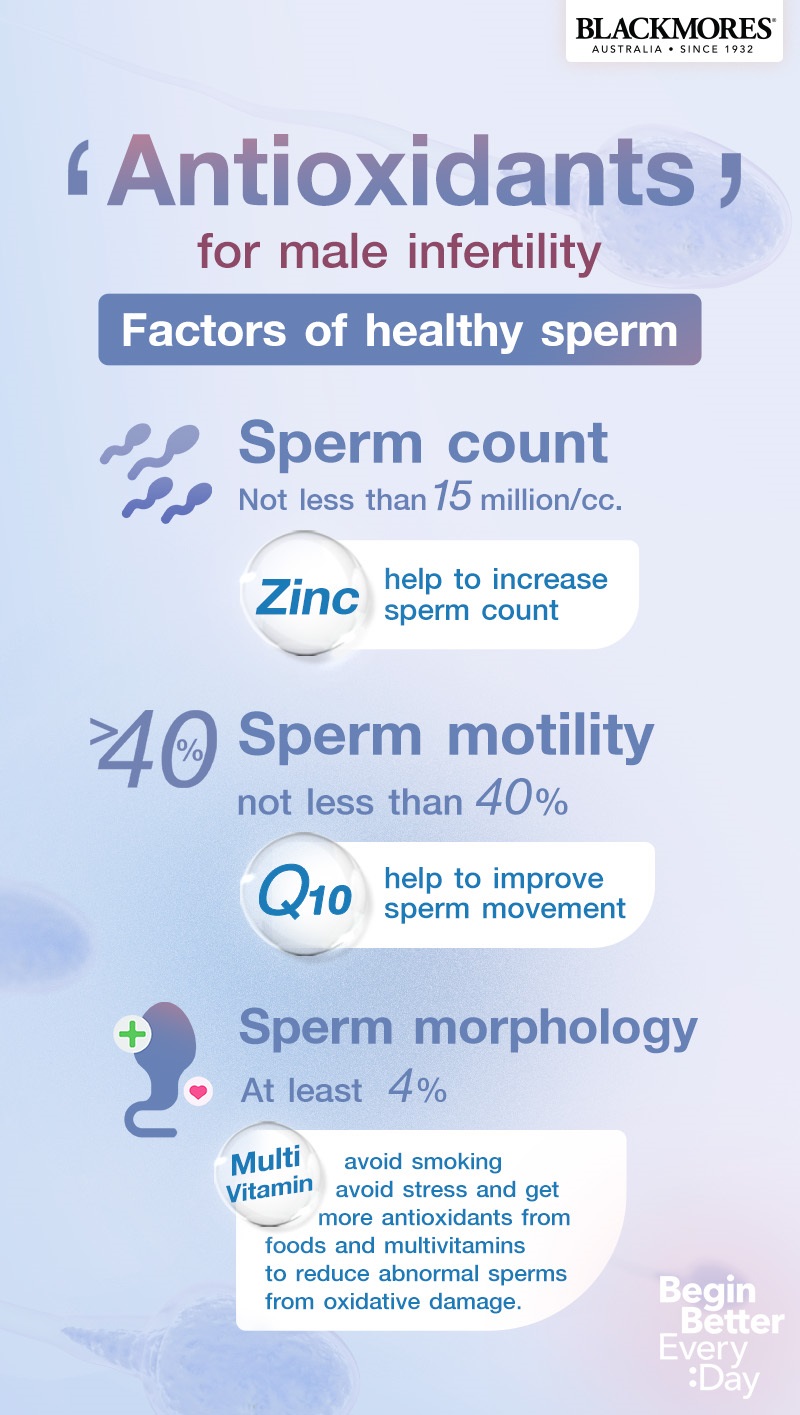Naturopath Stephanie Hamilton takes a look at what causes male infertility and points out the importance of antioxidants to keep those sperm healthy.
The health of the potential dad is just as important as the health of the potential mum when it comes to making babies.
Male infertility accounts for, or contributes to, at least 40% of all infertility cases, and in approximately 1 in 5 infertile couples in Australia, the cause is solely in the male partner.
Causes of Male Infertility
o Sperm production and function problems
o Blockage of sperm transport
o Sperm antibodies
o Problems with intercourse
o Hormonal issues
Clean up your act
Abnormal sperm function is a common cause of male infertility. There may be too few sperm being produced, or problems with the way the sperm functions. Sperm count and motility are greatly affected by environmental factors. So, enhancing the chances of conception could be as simple as cleaning up the diet and lifestyle.
Stress, drugs, alcohol, caffeine, smoking, lack of sleep, processed food, an unhealthy diet and illness all have a considerable impact on sperm function and production. Exposure to various chemicals, heat, radiation and heavy metals can also contribute to poor sperm quality.
Adopting a diet rich in fresh and colourful vegetables and fruits, organic or hormone-free meats, adequate protein, complex carbohydrates and good fats will greatly increase the quality of the sperm.
Antioxidants for male infertility
The sperm membrane is rich in polyunsaturated fatty acids and is therefore highly sensitive to oxidative stress caused by free radicals. Oxidative stress directly causes sperm damage, deformity and eventually male infertility. Antioxidants mop up free radicals and can prevent the damage that oxidative stress can cause.
Numerous antioxidants such as vitamin C, vitamin E, glutathione, and CoQ10 have proven benefits in treating male fertility:
Vitamin C: Low levels of vitamin C have been found to lead to infertility and increased damage to the sperm's genetic material.
Vitamin E: Vitamin E supplementation improves sperm function, sperm motility and sperm count.
Glutathione: Glutathione is crucial to sperm antioxidant defenses and supplementation improves sperm function.
CoQ10: Supplementation of co-enzyme Q10 improves sperm count and motility.
Deficiencies in zinc, vitamin B12 and selenium have all been linked to poor sperm production, motility and function and therefore male infertility.
It is very important that the health of the male is considered when attempting to conceive. Remember that new sperm take about 3 months to mature, so it is important to follow a healthy diet and lifestyle for a minimum of 3 months to ensure the health of sperm. Consider seeing a naturopath who can help to recommend the foods and nutrients that would best improve fertility.
DID YOU KNOW?
3 ways to boost your sperm count
1. Take an antioxidant supplement
2. Reduce your intake of caffeine, alcohol and processed foods
3. Give up smoking





















































